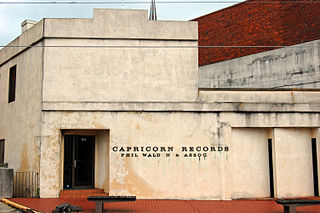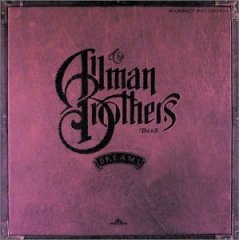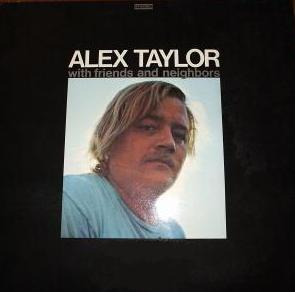Related Research Articles
Southern rock is a subgenre of rock music and a genre of Americana. It developed in the Southern United States from rock and roll, country music, and blues and is focused generally on electric guitars and vocals. Author Scott B. Bomar speculates the term "southern rock" may have been coined in 1972 by Mo Slotin, writing for Atlanta's underground paper, The Great Speckled Bird, in a review of an Allman Brothers Band concert.

Capricorn Records was an independent record label founded by Phil Walden and Frank Fenter in 1969 in Macon, Georgia. Capricorn Records is often credited by music historians as creating the southern rock genre.

Elvin Richard Bishop is an American blues and rock music singer, guitarist, bandleader, and songwriter. An original member of the Paul Butterfield Blues Band, he was inducted into the Rock and Roll Hall of Fame as a member of that group in 2015 and the Blues Hall of Fame in his own right in 2016.

The Marshall Tucker Band is an American rock band from Spartanburg, South Carolina. Noted for incorporating blues, country, jazz, into eclectic sound, the Marshall Tucker Band helped establish the Southern rock genre in the early 1970s. While the band had reached the height of its commercial success by the end of the decade, it has recorded and performed continuously under various lineups for 45 years. Lead vocalist Doug Gray remains the only original member still active with the band.
The Volunteer Jam is an annual concert headlined by the Charlie Daniels Band, featuring a multitude of musical acts that perform onstage with the band. It was first held on October 4, 1974, at the War Memorial Auditorium in Nashville, Tennessee.

Hour Glass is the debut studio album by the group of the same name, issued in October 1967 on Liberty Records, the first of two by the group that featured the namesakes of The Allman Brothers Band.

Charles Alfred Leavell is an American musician. A member of the Allman Brothers Band throughout their commercial zenith in the 1970s, he subsequently became a founding member of the jazz rock ensemble Sea Level. He has served as the principal touring keyboardist and de facto musical director of The Rolling Stones since 1982. As a session musician, Leavell has performed on every Rolling Stones studio album released since 1983 with the exception of Bridges to Babylon (1997). He has also toured and recorded with Eric Clapton, George Harrison, David Gilmour, Gov't Mule and John Mayer.

Sea Level was an American jazz fusion band from Macon, Georgia that mixed jazz, blues and rock between 1976 and 1981. An offshoot of The Allman Brothers Band, Sea Level took on a life of its own as tensions grew between Gregg Allman and other members resulting in the loss of two of ABBs founding members.
Phil Walden was a co-founder of the Macon, Georgia-based Capricorn Records, along with former Atlantic Records executive Frank Fenter.
Wet Willie is an American band from Mobile, Alabama. Their best-known song, "Keep On Smilin'", reached No. 10 on the U.S. Billboard Hot 100 chart in August 1974. Several other of the group's songs also appeared on the singles charts in the 1970s, which utilized their soulful brand of Southern rock.

Dreams is a 1989 four-disc box set issued by the Allman Brothers Band.

Frank Fenter was a music industry executive.

Alex Taylor With Friends and Neighbors is the 1971 debut album by Alex Taylor, brother of James, Livingston and Kate Taylor. The album was recorded in Macon, Georgia at Capricorn Studios. The standout tracks are brother James' "Highway Song", "It's All Over Now", along with David Brown & Gregg Allman's "Southbound".

A New Life is the second album by The Marshall Tucker Band. It was recorded in Macon, Georgia at Capricorn Studios. Guest musicians include Charlie Daniels and Jaimoe from The Allman Brothers Band.

Where We All Belong is the third album by The Marshall Tucker Band. It is a double album; disc one is a studio album and disc two is a live album, featuring extensive jamming by the band and guest fiddle player, Charlie Daniels, on "24 Hours at a Time". Album two was recorded live at the Performing Arts Center in Milwaukee, Wisconsin on July 31, 1974. A printing error in the liner notes states Toy Caldwell credited as playing lead guitar and vocals on "Can't You See." "Can't You See" was actually recorded at this show, but would be retained for release on the band's following album, Searchin' for a Rainbow, in 1975. Album one was recorded in 1974 in Macon, Georgia at Capricorn Studios.

"Midnight Rider" is a song by the American rock band the Allman Brothers Band. It was the second single from their second studio album, Idlewild South (1970), released on Capricorn Records. The song was primarily written by vocalist Gregg Allman, who first began composing it at a rented cabin outside Macon, Georgia. He enlisted the help of roadie Robert Kim Payne to complete the song's lyrics. He and Payne broke into Capricorn Sound Studios to complete a demo of the song.

Southern Rock Gold is a two-disc greatest hits compilation album released in 2005. It features 32 of the greatest hits from Southern rock, many of which are from the Universal Music Group catalogue. The liner notes on the CD consist of a 9 page article written in September 2005 by Scott Schinder about Southern rock with emphasis on a behind-the-scenes look at the songs and groups featured in the compilation. The article itself is followed by a list of the songs, including each song's author, recording date and the album it was originally released on.
Grinderswitch was a southern rock band formed near Macon, GA in the early 1970’s. Formed from a collaboration of musicians through word of mouth and connections to already established bands and musicians, Grinderswitch became a known act during the peak of the southern rock era. They recorded a number of albums for Capricorn Records in the 1970s, but never achieved the same widespread recognition enjoyed by some of the label's other artists, such as The Allman Brothers Band and Marshall Tucker Band. In the UK they are perhaps best known for their recording "Pickin' the Blues", which was used for many years by the disc jockey John Peel as the theme tune for his BBC radio shows.

"The South's Gonna Do It (Again)", is a song written and performed by the Charlie Daniels Band and released on their 1974 album Fire on the Mountain.
References
- ↑ Paul Hornsby Archived 2008-07-25 at the Wayback Machine at the Alabama Music Hall of Fame website
- ↑ Paul Hornsby at AllMusic